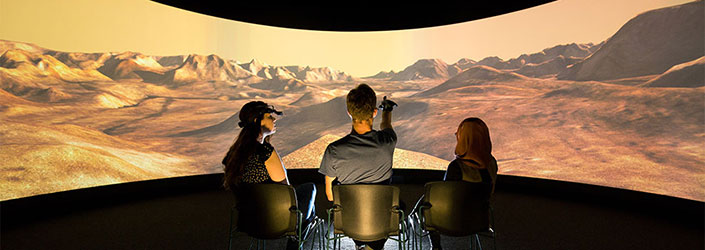Types of PACE activities
PACE offers a diverse range of practical activities within government, non-government, industry and not-for-profit organisations to give you the chance to put theory into practice in the real world.
PACE in your degree
Your PACE unit:
- is a part of the 'Core Zone' of your course structure
- may be specified or you may be able to select from a list of options.
You can also choose to do an additional PACE unit in your Flexible Zone if you have space available.
To enrol in a PACE unit you must satisfy the prerequisites of the unit.
Check the Course Handbook to find out which:
- PACE unit you must complete to satisfy your degree requirements
- prerequisites apply to a PACE unit.
To enrol in some PACE units, you need to submit a request for special approval.
Units and activities
PACE units are offered across all academic disciplines and each unit includes a practical activity which is linked to the unit's learning outcomes.
Your activity may be completed in various locations, settings and modes depending on which PACE activity you undertake and the host organisation you are working with.
Our host organisations span all sectors of the economy including:
- industry
- government
- non-government
- not for profit
Your activity might be completed:
- on site at the host organisation
- partly on site and partly on campus
- outside in the natural environment
- on campus with meetings held virtually
- individually
- with a partner
- in a small group
- in a multi-disciplinary team
Common PACE activities
There are many different types of PACE activities. Here are some of the most common:
Internships
One-off, carefully structured and closely supervised learning experience conducted in the workplace. Internships are offered as elective PACE units by the Macquarie Business School.
Practicums
A compulsory practical learning experience conducted in the workplace as part of a professionally accredited degree. Practicums are often embedded as part of degrees in education, early childhood, or allied health and involve formal competency-based assessments.
Fieldwork
Activities conducted on a site in the natural and/or built environment in order to collect data (eg soil samples, information about animals, etc) for the purposes of informing a study about that environment or site. Fieldwork is often a part of degrees in environmental and life sciences.
Community development projects
Activities with non-government organisations or other not for profits which support the goals of the organisation and the community it serves.
Collaborative research projects
Students work together to achieve the common goal of producing new knowledge or understanding. Research projects can be completed in a wide range of disciplines.
Industry projects
Partners interact with groups of students on real projects, usually on campus. Projects are identified by the partner to address key business challenges of an organisation, industry or sector.
You can find out more in the PACE site in Employability Connect.
Manage your PACE activity with Employability Connect
Visit Employability Connect to find out which PACE unit you need to complete to meet your degree requirements.
